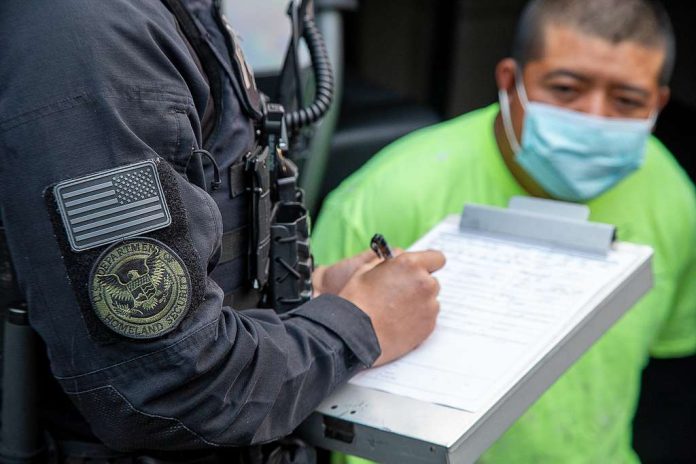
In Suzanne Collins’ The Hunger Games, the tributes from District 12 are expected to perform, survive and remain silent under constant surveillance.They are outsiders in a system built against them, where a wrong move, gesture, or word could lead to punishment. Today, many international students in the United States feel a strikingly similar pressure, not in a dystopian arena, but in their classrooms, dorms and everyday lives.
At DePauw University, that tension quietly weaves into the students’ daily lives through visa issues, confusing national regulations and administrative restrictions. Even routine academic planning becomes fraught with uncertainty.
Living Under Watch: Social Media and Travel Fears
A recent federal immigration policy update has left many DePauw international students feeling as if they have been entered into a game where the rules are not fully explained. An email was sent to all international students on April 16 from the Office of International Student Affairs (ISA). Director Beth Haymaker warned students that social media content perceived as “supporting or promoting antisemitic terrorism” could lead to the denial of visa renewals, permanent residency applications, or eligibility for post-graduation programs such as Optional Practical Training (OPT) and the STEM OPT Extension.
“We’re international students, which means we don’t have the ‘right’ to protest or attend political organizations,” said a student. “I have no idea how far the government scans go. There isn’t any specific information about how the monitoring works. It just feels like we’re being watched and we can’t control how our actions are interpreted.”
The pressure to self-censor extends beyond social media and into the classroom. An anonymous professor noted that the new policy could be interpreted as a violation of free speech, particularly in social science and humanities courses where political discussion is central to the curriculum. She explained that the uncertainty around what might be flagged could limit how classes operate and even complicate how professors grade participation or assess student work involving political engagement.
Other students are feeling the weight in different ways. A sophomore planned to visit home this summer. But now, she's unsure.
“I’m really looking forward to going home,” she said, “but I don’t know if I’ll be let back in. One X post or one link shared on Instagram on political issues could be enough for immigration officers to block me.”
They may not be standing in a Capitol arena, but students like this sophomore are constantly weighing every decision.
Exploited by the Game: The Rise of Scams
The fear bred by the new immigration policy has created opportunities for exploitation. On April 21, another ISA email warned students about a rise in scams targeting the international population, many impersonating federal agencies like the U.S. Immigration and Customs Enforcement (ICE), the U.S. Citizenship and Immigration Services (USCIS), and the U.S. Department of Homeland Security (DHS).
Haymaker shared a chilling case in Northeast Ohio, where a student lost $95,000 after scammers posing as government officials claimed he needed to pay to “avoid deportation.” Using spoofed phone numbers, these callers can appear disturbingly legitimate.
“You’re already walking on eggshells,” said an anonymous junior. “When someone calls and says you’re in trouble, you panic. You believe it. You don’t want to be the next person who disappears.”
ISA has strongly advised students not to send money, not to share personal information and to hang up immediately. Even so, fear remains, allowing scammers to exploit the silence and confusion that many students now carry.
Campus Support and Institutional Response
While students manage stress behind the scenes, DePauw’s administration has taken public steps to support them. ISA encourages students to consult with staff before making travel decisions or engaging in online political discussion.
In the April 7 faculty meeting, several professors raised concerns about the psychological and legal burdens facing DePauw’s international students. President Lori White responded by introducing a subgroup on immigration concerns, co-chaired by Vice President for Academic Affairs Dave Berque, Vice President for Enrollment Mary Beth Petrie, and Vice President for Student Affairs John Mark Day.
Though President White reassured the campus that no DePauw students have been directly affected by federal action, some faculty called for clearer commitments and legal protections.
International Student Affairs recommends a set of precautions for navigating this situation:
- Carry passport and visa documentation when leaving campus
- Refrain from engaging with political content on social media, or consult staff if unsure
- Do not send money or give personal information to unsolicited calls or emails
- Report suspicious messages to ISA immediately
- Schedule check-ins before booking travel outside the U.S.
For international students, the experience of living in the U.S. is no longer just about academics, but it’s about performing legality, controlling visibility and minimizing risks to survive.
